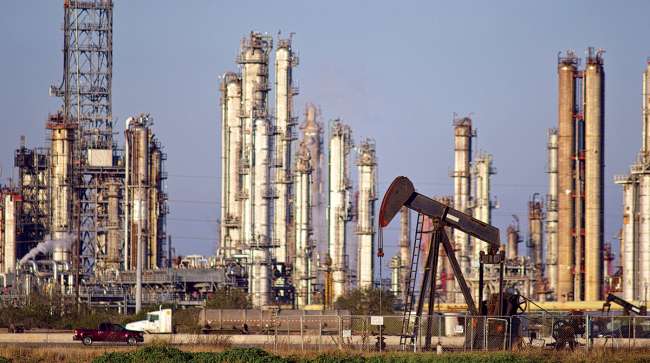Senior Reporter
Diesel Prices May Increase as Cargo Industry Makes 2020 Fuel Switch, Experts Say

The looming adoption of a mandate that will require maritime vessels to burn cleaner fuel is projected to put upward pressure on diesel prices next year, but transportation experts are more concerned about how the change will affect the supply of diesel fuel for trucks.

By 2020, the price of diesel could be as much as 20 cents a gallon more expensive than it is today, according to a March 27 report from the U.S. Energy Information Administration. The group cites as a reason the Jan. 1, 2020, deadline that the International Maritime Organization has set for cargo and cruise ships in certain stretches of open water to switch from so-called “No. 6” fuel oil — commonly called bunker fuel — to cleaner-burning diesel fuel.
“The change in sulfur limits has wide-ranging repercussions for the global refining and shipping industries as well for petroleum supply, demand, trade flows and prices,” EIA said in the report. “EIA anticipates that the effects on petroleum prices, will be most acute in 2020, and the effects on prices will be moderate after that.”
For trucking, the key issue is how the change will affect the marketplace for diesel fuel, said Glen Kedzie, Energy and Environmental Counsel for American Trucking Associations.

Kedzie
“For the members that we represent, I think the pricing is not as great a concern as the availability. Pricing, in terms of fuel contracts, in terms of passing costs through fuel surcharges, there is a way to address cost increases in fuel itself,” he said. “They pass it along. For the smaller, and midsized guys they don’t have the luxury of buying big volumes of fuel.”
However, the U.S. government also is warning of potential shortages in 2020. In its annual “Economic Report of the President,” the Council of Economic Advisors in March said, “Global bunker fuel represents about 5% of total oil demand, fuel switching by ships in 2020 may cause significant disruptions in specific product markets.” The CEA said there could be a shortage between 200,000-600,000 barrels in compliant fuels which “will likely trigger higher prices, though estimates of price shocks to fuels including diesel, gasoline and jet fuel vary substantially.”
But other energy analysts are not predicting significant diesel price increases, because domestic U.S. oil production shows no signs of slowing down.
“There is too much U.S. production. I don’t think it’s something that is going to create this apocalypse and there are some people out there talking, four, five, six dollars a gallon, but I do think it is something that will lift the price for diesel and for jet fuel, and for low sulfur fuel oil,” said Tom Kloza, global head of energy analysis with the Oil Price Information Service, in an interview with Transport Topics.

A cargo ship. (Getty Images)
According to a 2017 survey of shipping companies from investment bank UBS, 74% said they will switch to diesel, while the rest either plan to install equipment to remove sulfur or convert their ships to liquefied natural gas.
Because bunker fuel comes from the same distillate as diesel, the change could put pressure on diesel prices — potentially pushing them up, especially along the Atlantic and Pacific coasts near many of the major ports — and possibly cause some shortages for the trucking industry as that diesel goes into ships.
Heavy, thick bunker fuel has been used in the cargo shipping and cruise line industry for years because it is inexpensive, especially compared to other fuels. After oil has been refined into diesel, gasoline or jet fuel, bunker fuel is what is left over at the refinery.
Staff Reporter Jim Stinson contributed to this report.




